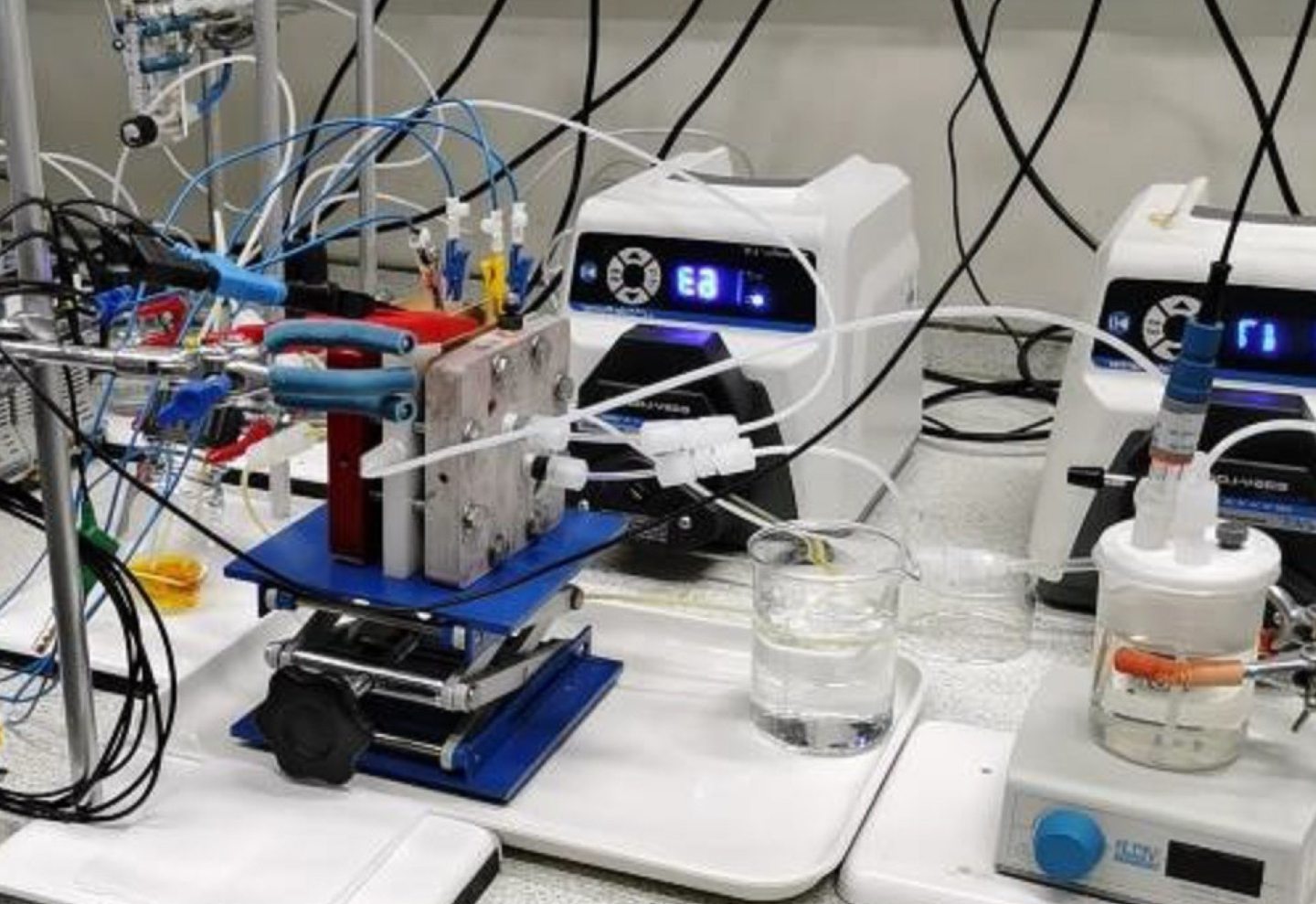
Once in a while something comes along which suggests that all is not yet lost in terms of the idea that the UK is actually capable of securing real skin in the low carbon energy technologies game.
Imperial College has established a spin-out company known as RFC Power to commercialise work being done on the development of a genuinely low-cost, long-term energy storage solution based on the redox (reduction-oxidation) battery.
At this great British learning and research institution, a group of engineers and chemists have come up with a polysulphide-air redox flow battery (PSA RFB) which could become a gamechanger in the large-scale energy storage sphere.
According to those working on the project, its dual-membrane design overcomes the main problems with this type of large-scale battery, apparently at last opening up its potential to store excess energy from, for example, renewable sources such as large wind and solar farms.
This development is probably pivotal and could enable the UK to gain real traction in the still nascent super-large batteries opportunity, assuming RFC Power doesn’t get gobbled up by foreign interests in the face of British industrial and investment apathy.
According to Imperial, though redox flow batteries are strong candidates for grid-scale energy storage due to their potential to decouple power and energy capacity, the technology has achieved limited market penetration due to issues related to “cross-contamination, sluggish redox kinetics, low energy and power densities, and relatively high cost”.
A redox flow battery converts chemical energy into electrical energy through reversible oxidation of so-called working fluids, otherwise called electrolytes. The idea first saw the light of day in the 1970s.
The amount of energy stored is governed by the volume of the electrolyte, making the design potentially easy to scale up.
However, the electrolyte used in conventional redox flow batteries – primarily vanadium – is expensive and mainly sourced from either China or Russia.
Given currently fractured global politics because of Russian president Putin’s war on Ukraine and growing distrust about China’s economic colonisation intentions and increasingly global military capabilities, there is a serious need to find alternatives; preferably cheaper too.
The redox project was kicked off well before the invasion and, for that matter, the UK’s hugely self-destructive exit from the EU (Brexit). Moreover, it attracted a sizeable European Research Council (ERC) grant in Q3 2019.
That’s roughly two years after Imperial set up RFC Power and a year before the start-up made it to the 2020 finals of a European future energy competition – New Energy Challenge.
This is a start-up competition jointly organised by Shell, Rockstart, YES!Delft and Get in the Ring, designed for entrepreneurs in Europe and Israel developing disruptive solutions that could be vital in accelerating the energy transition.
The mission of the Imperial team, led by Professors Nigel Brandon and Anthony Kucernak, has been to find widely available alternatives, to vanadium especially.
Their approach uses a liquid as one electrolyte and a gas as the other – in this case polysulphide (sulphur dissolved in an alkaline solution) and air.
However, the performance of polysulphide-air batteries to date has been limited because no membrane could fully enable the chemical reactions to take place while still preventing polysulphide crossing over into the other part of the cell.
So the Imperial team decided to try using two membranes to separate the polysulphide and the air, with a solution of sodium hydroxide between them.
According to Prof Brandon, who happens to be Imperial’s dean of the Faculty of Engineering: “To make this cost effective for large-scale storage, a relatively modest improvement in performance would be required, which could be achieved by changes to the catalyst to increase its activity or by further improvements in the membranes used.”
Which is where RFC Power is poised to come in. OK, so it didn’t win the competition, but the company’s name has been circulating within influential circles.
Even before the contest, in January 2020 it secured seed investment from venture capital provider IP Group in return for a 33.2% stake.
Sadly, IP is American and not local British.
In November 2021 it emerged that RFC Power signed up to a strategic collaboration with Ceres Power to gain access to its engineering and commercial expertise in exchange for 8.5% of itself.
Now regarded as the UK’s most valuable cleantech company, Ceres was founded 20 years ago and is also heritage Imperial.
In February this year, PwC named RFC Power as One to Watch in the Energy Sector as part of its UK Net Zero Future 50 listing.
And, last month (MAY 2022), it entered into a collaboration with Shell via the energy super-major’s GameChanger programme. This isn’t just about money as RFC Power will be introduced to experts from across Shell to help with de-risking critical aspects of its redox technology.
Now, whether RFC Power will make it to the top of the heap with an idea that started life at Imperial, with initial funding through the UK Research and Innovation Engineering and Physical Sciences Research Council, while also remaining a genuine British success story, is anybody’s guess…
 © Supplied by Imperial College Lon
© Supplied by Imperial College Lon